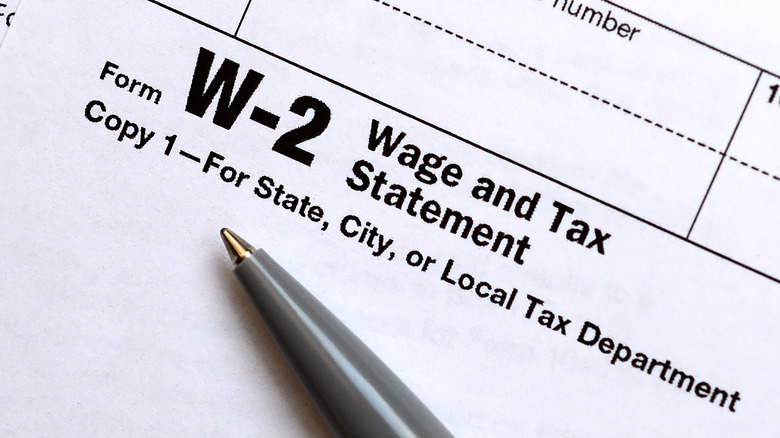Home Equity Loans And Taxes: What You Can And Can't Deduct
When tax season comes around, the conversation of tax deductions begins to enter public spaces once again. As taxpayers receive their W-2s and other tax-related documents from their employers, they tend to anticipate whether they'll owe the IRS money this year or be entitled to a refund, taking into account the total amount of taxable income earned over the past year. Tax deductions are expenses subtracted from a taxpayer's annual income and thus reduce the chances of taxpayers having to pay an exorbitant amount in any given season.
One of the most common forms of tax deductions created by the IRS is the mortgage interest deduction, a benefit granted to homeowners each tax season. Taxpayers who acquire an additional mortgage-related loan, like a home equity loan or a home equity line of credit, can also take advantage of interest deductions, though the rules structuring this particular form of deduction have shifted over the past six years. Previously, borrowers of home equity loans or HELOCs could deduct these loans' interest from their taxable incomes. But, a law implemented a few years ago altered who could benefit from this deduction. The Tax Cut and Jobs Act, passed in 2017, prevents certain taxpayers from writing off accumulated interest payments on their annual income taxes. In other words, the act reduces the number of homeowners who can take advantage of a home equity loan interest deduction.
Here's how the TCJA could impact your ability to claim a tax write-off this tax season:
What is tax-deductible?
When it comes to home equity loans and home equity lines of credit, there are two forms of debt that borrowers could accrue upon being approved: acquisition debt and home equity debt. To understand the difference between these two categories, it's important to consider what home equity loans and HELOCs are used for in the first place. Home equity loans give homeowners the ability to tap into the equity they've accumulated through monthly mortgage payments. This money, usually received in the form of a lump sum, can then be used to pay off any immediate debts or to fund a major project, like a home renovation. Though the equity you're accessing is technically money you've already contributed to paying off your mortgage, you're still paying a lender to tap into it, all while paying them interest to do so. The reason for which you intend to use the money determines the type of debt you've accumulated through acquiring your home equity loan or HELOC.
Here is where acquisition and home equity debt come into action. Acquisition debt is the money used from a home equity loan or HELOC to build, renovate, or buy a first or second home. In other words, it's when a homeowner accesses the equity accumulated from their mortgage payments to then use for house-related purposes. According to the TCJA, homeowners can now only deduct home equity loan or HELOC interest from their annual income if their acquired money is used for these reasons.
What isn't tax-deductible?
Home equity debt, on the other hand, is debt accumulated from a home equity loan or HELOC that is then used for any purpose other than home renovation, purchase, or construction. So, paying for college, a new car, a vacation, or medical bills regarding an illness or injury are all examples of home equity debt. The Tax Cut and Jobs Act now prevents taxpayers from deducting HELOC or home equity loan interest if said equity classifies as home equity debt. For example, suppose you used money from a home equity loan to help pay off student loans. In that case, you won't be eligible to deduct that sum you received from your annual income and may be taxed for more than if you had used it to instead renovate your home or acquire a second mortgage.
If you've accumulated acquisition debt through a home equity loan or home equity line of credit, it's important to consider when you acquired the loan: either before or after the act took effect in 2017. If you acquired an equity loan after the TCJA was implemented, all standards apply in terms of the size of the loan that can be considered for a tax deduction. Prior to the Tax Cut and Jobs Act, interest could be deducted for home equity loans of up to $1 million. But, after the act was implemented, this benchmark dropped to $750,000 for qualifying taxpayers.


